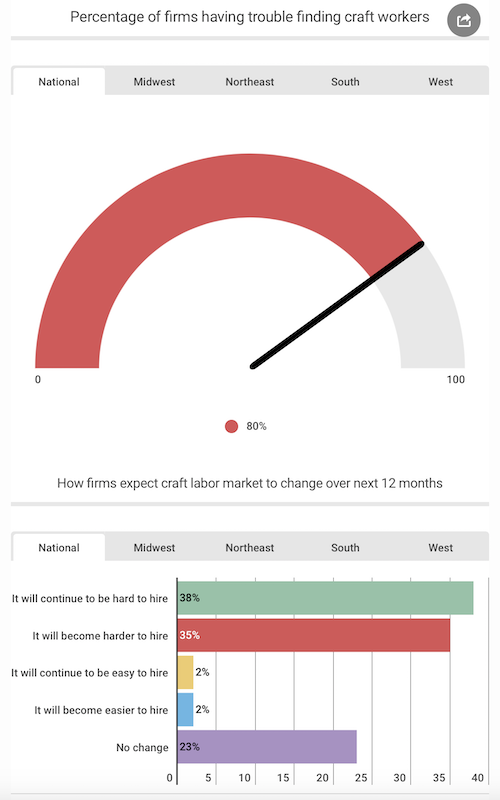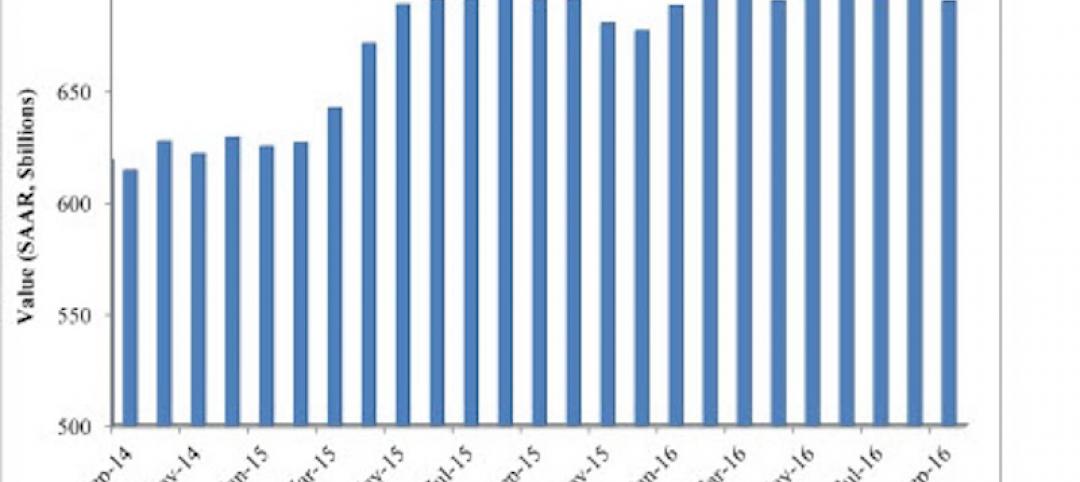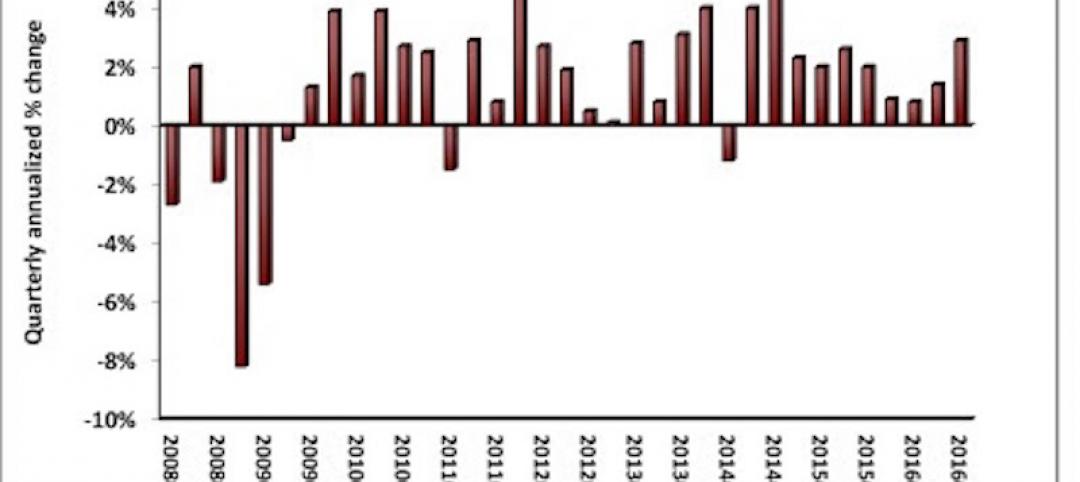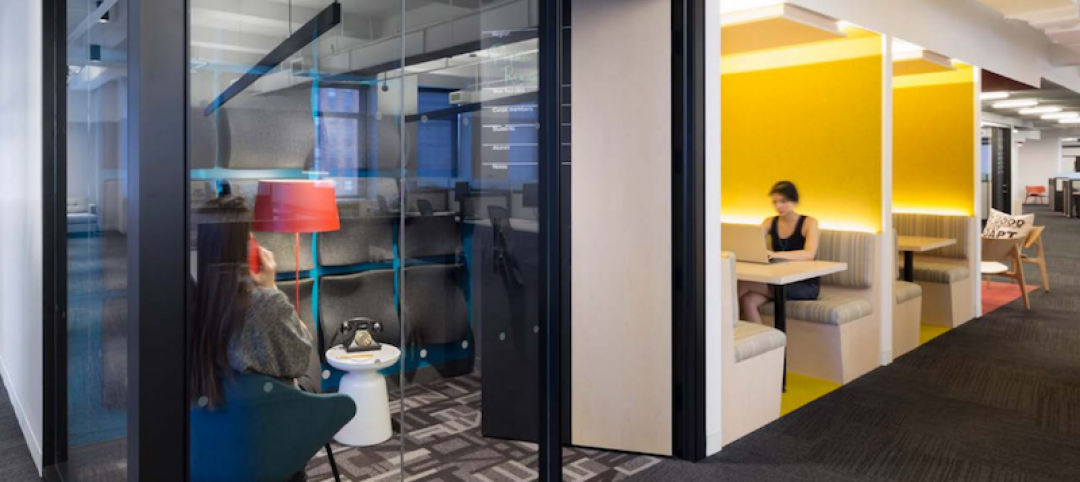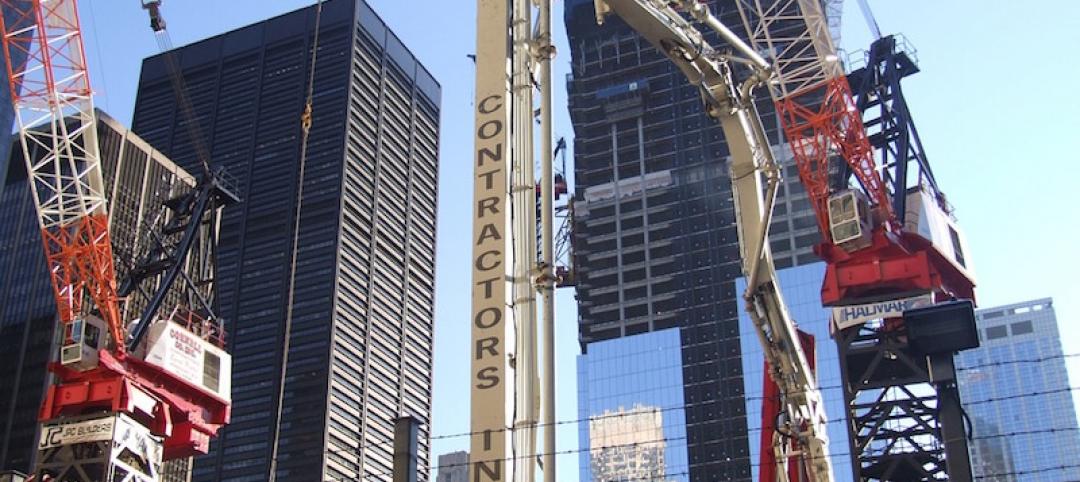You’d have to be living on the moon not to know that hourly construction workers are getting scarcer. But the magnitude of this labor shortage is writ large in a recent survey, released this week by Autodesk and the Associated General Contractors of America (AGC), which found that 80% of 1,935 respondents in 23 states report having a hard time filling hourly craft positions.
More concerning are the findings that nearly three-quarters of the construction firms polled don’t expect shortages to abate over the next year, and could, in fact, get worse. And the training and skill level of the labor that is available are deemed “poor” by 45% of those polled.
It remains to be seen whether and how soon the industry can dig itself out of this hole. To attract workers, two-thirds of the survey’s respondents say they’ve boosted base pay rates, and 29% are offering incentives and bonuses. A longer-term play finds nearly half of the firms polled—46%—having launched or expanded their training programs. Half of the respondents also say their companies are involved in career-building programs.
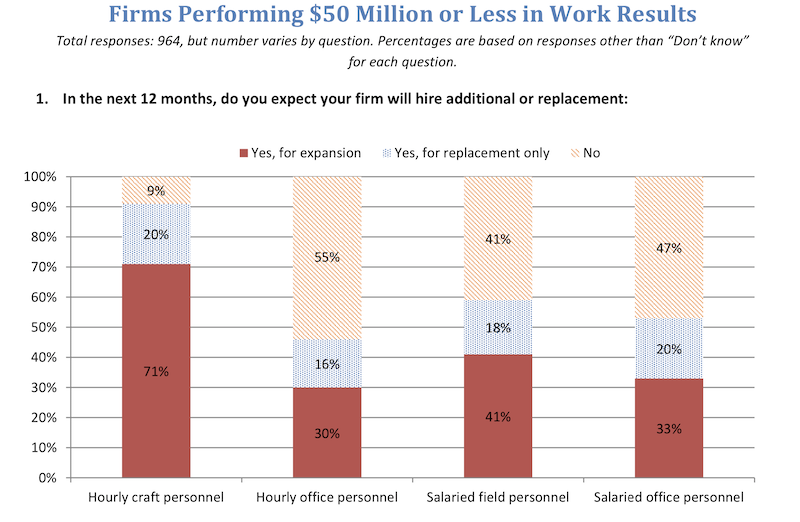
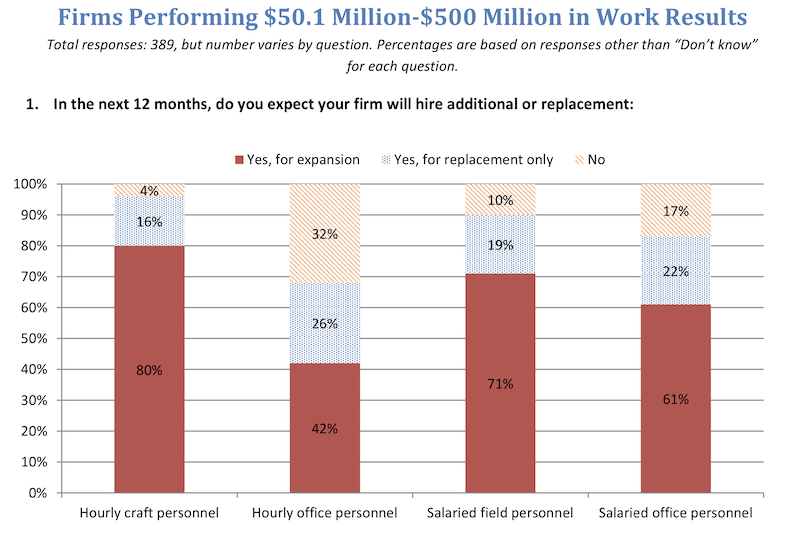
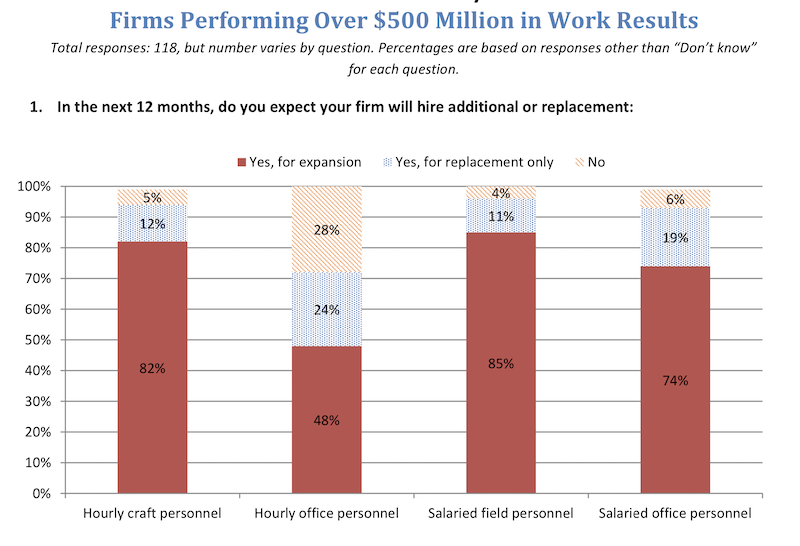
Labor shortage problems are hitting construction firms of all sizes, and are having a deleterious effect on companies' abilities to expand their businesses. Image: AGC-Autodesk
The labor shortage is shoving a perennially tech-phobic construction industry into the 21st Century. One-quarter of respondents are using tools like drones, 3D printers, and robots. Another 23% are relying on lean construction techniques, BIM, and prefabrication.
The disruption being caused by labor shortages is also manifesting itself in costlier projects that take longer to complete. Forty-four percent of the firms polled are increasing their construction prices, and 29% are factoring longer lead times into their bids.
“Workforce shortages remain one of the most significant threats to the construction industry,” said Stephen E. Sandherr, AGC’s chief executive officer. “However, construction labor shortages are a challenge that can be fixed, and this association will continue to do everything in its power to make sure that happens.”
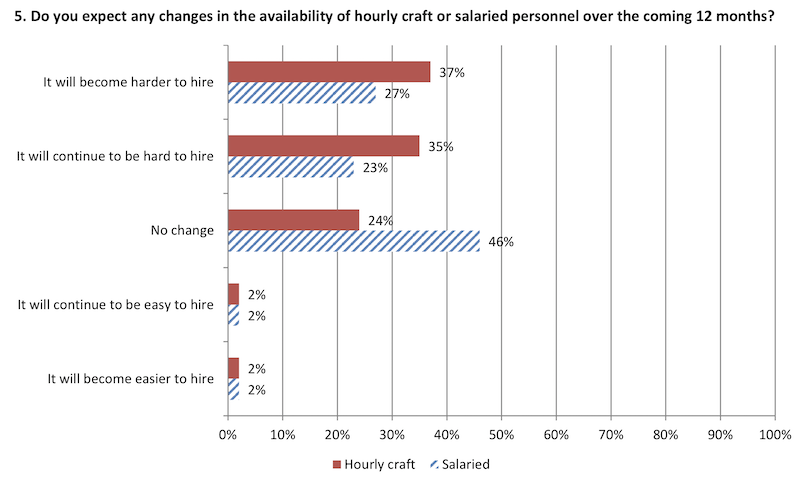
This chart, based on 964 responses from firms with $50 million or less in work results, shows how contractors are struggling to find salaried, as well as hourly, workers. Image: AGC-Autodesk
Over the past two years, AGC has secured $145 million in federal funding for career and technical education programs. It is urging the federal government to increase that funding, and to allow construction students to qualify for federal Pell Grants, which would make it easier for firms to establish apprenticeship programs.
More quixotic—given the Trump Administration’s virulent anti-immigration stance—is AGC’s call for the government to let more immigrants into the U.S. to work construction.
Related Stories
Industry Research | Nov 4, 2016
New survey exposes achievement gap between men and women designers
Female architects still feel disadvantaged when it comes to career advancement.
Market Data | Nov 2, 2016
Nonresidential construction spending down in September, but August data upwardly revised
The government revised the August nonresidential construction spending estimate from $686.6 billion to $696.6 billion.
Industry Research | Nov 1, 2016
Perkins Eastman Research releases white paper on ‘Centers for Healthy Living’ and whole-person wellness
Among the spotlight projects used as case studies for this white paper are C.C. Young, Dallas, Texas; Clark-Lindsey Village, Urbana, Ill.; Moorings Park, Naples, Fla.; NewBridge on the Charles, Dedham, Mass.; Rockwood Retirement Living: The Summit, Spokane, Wash.; Saint John’s on the Lake, Milwaukee, Wis.; and Spring Lake Village, Santa Rosa, Calif.
Market Data | Oct 31, 2016
Nonresidential fixed investment expands again during solid third quarter
The acceleration in real GDP growth was driven by a combination of factors, including an upturn in exports, a smaller decrease in state and local government spending and an upturn in federal government spending, says ABC Chief Economist Anirban Basu.
Market Data | Oct 28, 2016
U.S. construction solid and stable in Q3 of 2016; Presidential election seen as influence on industry for 2017
Rider Levett Bucknall’s Third Quarter 2016 USA Construction Cost Report puts the complete spectrum of construction sectors and markets in perspective as it assesses the current state of the industry.
Industry Research | Oct 25, 2016
New HOK/CoreNet Global report explores impact of coworking on corporate real rstate
“Although coworking space makes up less than one percent of the world’s office space, it represents an important workforce trend and highlights the strong desire of today’s employees to have workplace choices, community and flexibility,” says Kay Sargent, Director of WorkPlace at HOK.
Market Data | Oct 24, 2016
New construction starts in 2017 to increase 5% to $713 billion
Dodge Outlook Report predicts moderate growth for most project types – single family housing, commercial and institutional building, and public works, while multifamily housing levels off and electric utilities/gas plants decline.
Industry Research | Oct 20, 2016
New book from HDR explores opportunities for how healthcare organizations can reinvent the patient experience
Delta offers a close look at specific activities and behaviors that can help healthcare providers and caregivers discover revolutionary concepts to help them embrace and thrive in the rapid change that surrounds them.
Designers | Oct 12, 2016
Perkins Eastman and EwingCole co-publish new white paper examining the benefits and challenges of design research
The survey’s findings, combined with input from the EDRA conference, informed the content produced for “Where Are We Now?”
Market Data | Oct 11, 2016
Building design revenue topped $28 billion in 2015
Growing profitability at architecture firms has led to reinvestment and expansion


